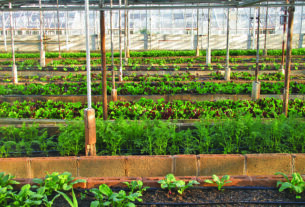Local food delivery services play a pivotal role in boosting community economies by providing convenient access to fresh, locally-sourced ingredients, thereby supporting local agriculture and sustaining regional produce consumption. These platforms enhance economic circulation within communities through efficient distribution, job creation, and local investment, while also promoting sustainable practices that reduce food miles and environmental impact. By choosing meal preparation with these services, consumers engage in a cycle that prioritizes local producers, freshness, nutritional value, and environmental health. The integration of modern logistics and technology ensures a direct farm-to-table route, minimizing carbon emissions, and preserving natural habitats. Additionally, these services offer diverse culinary experiences by celebrating seasonal produce, thus contributing to the resilience of local economies amidst global market fluctuations. In essence, local food delivery services are not just about meal preparation; they form a symbiotic relationship with consumers and regional farmers, fostering community cohesion, social bonds, and a sustainable ecosystem that benefits both personal health and environmental sustainability, all under the umbrella of local food delivery and meal preparation.
Local food delivery has become a vital lifeline for small-scale farmers and a cornerstone of community economic vitality. By prioritizing meal preparation with local ingredients, consumers not only enjoy peak freshness and superior nutrition but also contribute to a sustainable future. This article delves into the transformative impact of local food delivery services on supporting our agricultural roots, enhancing dining experiences, and fostering resilient local economies. Join us as we explore the multifaceted benefits of this burgeoning industry, where every meal ordered is a step towards a robust and thriving community landscape.
- Harnessing the Power of Local Food Delivery to Strengthen Community Economy
- Maximizing Freshness and Nutrition: How Meal Preparation with Local Ingredients Elevates Dining Experiences
- Building a Sustainable Future: The Role of Local Food Delivery Services in Supporting Small-Scale Farmers
Harnessing the Power of Local Food Delivery to Strengthen Community Economy

The rise of local food delivery services has become a pivotal player in bolstering the community economy by directly connecting consumers with local farms and producers. These platforms not only provide a convenient avenue for fresh, locally-sourced ingredients but also ensure that a larger portion of each transaction benefits the local agricultural sector. By leveraging modern logistics and technology, these services can efficiently deliver meal preparation components to households, reducing food miles and supporting sustainable practices. The economic impact is significant; every order placed through a local food delivery service often keeps more capital within the community, fostering job creation and stimulating local investment. Furthermore, these services encourage the consumption of seasonal and regional produce, promoting culinary diversity and resilience in the face of global market fluctuations.
In addition to the economic advantages, local food delivery services contribute to environmental sustainability. The reduced reliance on large-scale distribution networks means a lower carbon footprint, as well as preserving the natural landscape and biodiversity by supporting farms that practice environmentally friendly farming methods. Consumers who opt for meal preparation through these services can take comfort in knowing they are part of a sustainable ecosystem that values local producers and the health of their communities. This symbiotic relationship between consumers, local food delivery services, and regional farmers not only strengthens economic foundations but also fosters social bonds and community cohesion, ensuring a robust and resilient local economy.
Maximizing Freshness and Nutrition: How Meal Preparation with Local Ingredients Elevates Dining Experiences

Engaging in meal preparation with local ingredients through a local food delivery service offers a unique advantage in terms of maximizing freshness and enhancing nutrition, thereby elevating the dining experience. These locally sourced ingredients are often harvested at peak ripeness, ensuring that each component of the meal retains its maximum flavor and nutritional value. The shorter distance from farm to table not only reduces the carbon footprint associated with food transport but also means that the meals prepared for consumers arrive at their doorsteps brimming with vitality and essence, often within hours of being picked. This immediacy in supply chain allows for a culinary journey that celebrates the seasonal nature of produce, showcasing the diverse flavors and textures that can only be experienced when food is fresh.
Moreover, by supporting local farms through meal preparation services, consumers contribute to a robust agricultural economy. These services often collaborate with farmers who practice sustainable farming methods, further contributing to the health of the environment and the well-being of the community. The synergy between local food delivery services and local farms ensures that consumers have access to a variety of nutritious options, promoting dietary diversity and overall health. This symbiotic relationship not only transforms the way we think about meal preparation but also offers a tangible benefit to our daily well-being and environmental sustainability.
Building a Sustainable Future: The Role of Local Food Delivery Services in Supporting Small-Scale Farmers

The resurgence of local food delivery services has become a pivotal force in nurturing the livelihoods of small-scale farmers and fostering sustainable agricultural practices. These services bridge the gap between producers and consumers, ensuring that fresh, locally sourced ingredients make their way directly to kitchen tables. By prioritizing meal preparation with local produce, these platforms not only enhance the flavor and nutritional value of meals but also reduce the carbon footprint associated with long-distance transportation. This model of direct-to-consumer delivery is a cornerstone in building a sustainable future, as it supports small-scale farmers by providing them with a steady market for their goods, which is crucial for their financial stability and ability to continue practicing environmentally friendly farming methods.
The integration of technology into local food delivery systems has streamlined the process of connecting consumers with the nearest farms, making it an efficient and viable option for many. With features like real-time availability, subscription models, and flexible ordering systems, these services offer convenience without compromising on the quality or origin of the food. The role of meal preparation in this ecosystem is to transform locally sourced ingredients into a variety of dishes that cater to diverse tastes while maintaining the integrity of the fresh produce. This symbiotic relationship between local food delivery services and small-scale farmers not only strengthens community ties but also contributes to a more resilient and sustainable food system, one meal at a time.
In conclusion, the resurgence of local food delivery and meal preparation services represents a significant stride towards bolstering community economies and promoting sustainable agricultural practices. By prioritizing locally sourced ingredients, these services not only maximize freshness and nutrition, thereby enhancing dining experiences, but also provide a vital lifeline to small-scale farmers. As the demand for such services continues to rise, there is an opportunity to create a robust network that supports local agriculture while offering consumers healthier, more flavorful options. The future of food lies in the hands of these initiatives, which hold the promise of a sustainable and vibrant culinary landscape. Embracing local food delivery and meal preparation is not just a choice but a commitment to nurturing community prosperity and environmental stewardship.



